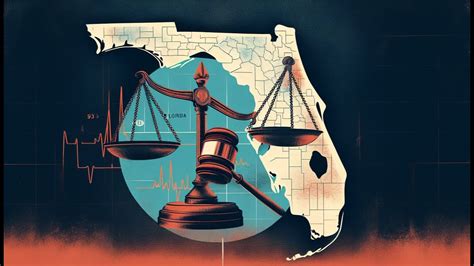The evolving landscape of immigration laws has a profound impact on individuals, businesses, and society as a whole. With recent changes in legislation, understanding the implications of new immigration laws is crucial for both immigrants and those involved in industries that rely on immigrant labor. This article provides a comprehensive review of the latest immigration laws, examining their far-reaching effects on immigrants, businesses, and the broader economy. It will also explore the social and legal consequences these laws may have on communities, offering insights into how these changes shape public policy and the legal framework. By analyzing these developments, we aim to provide clarity on what the future may hold for immigration in today’s rapidly shifting legal environment.
alijyun.com will lead a thorough examination of this topic.
1. Introduction
Immigration laws are fundamental in shaping the social and economic landscape of any nation. As governments worldwide adjust and implement new legislation, the impact of these changes reverberates through various societal sectors. Not only are immigrants directly affected, but businesses, communities, and the overall economy experience consequences as well. Recent revisions to immigration laws have ignited widespread discourse and debate due to the substantial alterations they introduce to the legal framework.
This article provides a comprehensive examination of the new immigration laws, analyzing the latest legislative changes and their potential impact. We will explore how these laws may affect immigrants’ paths to residency, employment, and family reunification. Additionally, we will delve into the broader consequences for businesses and the economy, as well as the social and legal ramifications. Our goal is to equip readers with a thorough understanding of the effects of these new laws and guide stakeholders through the ever-changing legal landscape surrounding immigration policy.

2. Overview of new immigration laws
The recently enacted immigration laws signal a substantial policy change, introducing several key alterations aimed at addressing both national security concerns and the rising need for labor across diverse industries. These laws implement more stringent border control measures, strengthening screening procedures for new arrivals while tightening criteria for asylum seekers and refugees. Furthermore, the legislation emphasizes merit-based immigration, prioritizing skilled workers in high-demand fields such as technology and healthcare for visa and residency approvals.
The new legislation significantly alters family-based immigration. By placing stricter limits on sponsoring family members for permanent residency, the revised laws prioritize economic contributions over family reunification. This shift has sparked concerns within immigrant communities, especially those who depend on family support systems.
Furthermore, the legislation imposes penalties on employers who disregard labor regulations by employing undocumented workers, thereby placing a greater onus on businesses to uphold compliance. These provisions seek to limit illegal immigration and safeguard domestic labor markets. In essence, the new immigration laws represent a compromise between strengthening national security and meeting the country’s economic needs. Nonetheless, they introduce difficulties for immigrants and businesses as they adjust to a more intricate and stringent legal landscape.

3. Impact on immigrants
The revised immigration laws carry significant consequences for immigrants, especially in regards to residency, employment, and family reunification. The more stringent asylum and refugee requirements pose challenges for individuals seeking legal entry, hindering their ability to find refuge from conflict or persecution. The emphasis on merit-based immigration, prioritizing skills and qualifications, may limit opportunities for low-skilled workers to enter or remain in the country.
Family-based immigration has been significantly impacted by new restrictions on sponsoring family members for residency. These policies have generated concern within immigrant communities, as they can delay or even prevent families from being reunited. Many immigrants rely on their family support networks, and the loss of this support can exacerbate the challenges of adjusting to life in a new country.
Furthermore, undocumented immigrants are confronted with heightened risk as penalties for both individuals and employers become more severe. These developments exacerbate the uncertainty and insecurity experienced by numerous immigrants, especially those already in vulnerable positions, and make the process of navigating the immigration system even more intricate.

4. Impact on businesses
The revised immigration laws will have a significant impact on businesses, particularly those reliant on immigrant labor. Sectors like agriculture, hospitality, construction, and technology could experience labor shortages as a result of stricter immigration policies. The transition to a merit-based system may pose challenges for businesses that rely on low-skilled immigrant workers, as they may struggle to find replacements. This could lead to increased labor costs and potential disruptions in production and service delivery.
The emphasis on skilled workers, a boon for high-demand sectors like technology and healthcare, is furthered by new laws prioritizing the entry of qualified immigrants. However, even these businesses may encounter obstacles in the form of more stringent visa processes and heightened bureaucratic hurdles.
The scrutiny of employers has intensified, with stricter penalties for employing undocumented workers. This heightened scrutiny forces businesses to prioritize full compliance with new regulations, resulting in increased costs associated with legal compliance and employee verification procedures.
Though some sectors may find advantage in a more selective immigration policy, others could face disruption. These businesses will need to adjust rapidly to a stricter and more regulated hiring landscape. This adaptability, however, could affect overall business growth and operational efficiency in both the short and long run.
5. Economic implications
The new immigration laws have wide-ranging economic consequences, impacting both the labor market and overall economic growth. One of the most immediate effects is the potential for labor shortages in industries heavily reliant on immigrant workers, such as agriculture, construction, and hospitality. A decrease in low-skilled immigrant workers entering the workforce could result in businesses within these sectors facing escalating labor costs as they struggle to fill open positions. This, in turn, could lead to higher prices for goods and services.
Alternatively, focusing on attracting skilled immigrants could be advantageous for high-tech and specialized industries, potentially leading to increased innovation and productivity. The new laws aim to address critical skill shortages in fields like healthcare, engineering, and IT by prioritizing workers with specific qualifications, which could stimulate economic growth in these sectors.
Reduced immigration could have a dampening effect on overall economic growth. Fewer immigrants joining the workforce may lead to decreased consumer spending, impacting sectors like retail and housing. Moreover, the increased costs associated with enforcing stricter immigration controls and ensuring legal compliance could strain both public sector finances and business resources, potentially hindering long-term economic recovery and expansion.
6. Social implications
The newly enacted immigration laws are expected to have a profound impact on society, especially within immigrant communities. One key concern is the more stringent regulations on sponsoring relatives for residency, which will make family reunification significantly more challenging. For many immigrants, their families provide invaluable emotional and financial support, and these new obstacles could result in increased isolation and hardship, particularly for those already navigating the complexities of settling in a new land.
The laws may also contribute to increased social tensions. As immigration becomes more selective, certain groups may feel marginalized or excluded, leading to a rise in anti-immigrant sentiment and further division within communities. Additionally, undocumented immigrants are likely to face greater fear of deportation, which could drive them further into the shadows, making it more difficult for them to access essential services such as healthcare and education.
On the positive side, proponents of the new laws argue that prioritizing skilled immigration can enhance social integration by attracting immigrants who are more likely to contribute economically and culturally. However, the overall effect may lead to a more polarized society, with greater challenges to fostering social cohesion and inclusivity.
7. Legal implications
The revised immigration laws introduce substantial legal ramifications, reshaping the environment for both immigrants and legal professionals. Notably, stricter criteria for asylum seekers and refugees are likely to spark increased litigation. Individuals facing rejection by immigration authorities may be compelled to challenge these decisions in court. This heightened threshold for proving eligibility could trigger a wave of appeals and legal disputes, further burdening the judicial system.
Furthermore, the transition to a merit-based immigration system creates intricate challenges in navigating the application processes for skilled workers. Legal professionals must remain current on evolving requirements and procedures, potentially necessitating additional training and resources to effectively represent their clients. The heightened scrutiny of employer practices also demands that businesses implement more stringent compliance measures to avoid legal ramifications, underscoring the crucial role of legal counsel.
Moreover, imposing penalties on employers who hire undocumented workers creates an increased legal burden. This could trigger a surge in employment-related lawsuits, as companies face accusations of discriminatory practices or wrongful termination tied to immigration status. Consequently, the legal environment is becoming more complex, demanding a proactive strategy from both immigrants and legal experts to effectively manage the changing regulations.
8. Conclusion
The new immigration laws represent a substantial policy change with far-reaching consequences for immigrants, businesses, and society as a whole. Though the intent behind these changes may be to bolster national security and address labor market needs, the reality is a complex and challenging landscape. Immigrants face increased obstacles to entry, diminished opportunities for family reunification, and an increasingly precarious life as they navigate a stricter legal framework.
Businesses face mounting operational challenges due to labor shortages, compliance demands, and the risk of lawsuits. This volatile environment necessitates swift adaptation. Economically, the legislation may stifle growth in some sectors while favoring others, resulting in an uneven playing field that could worsen existing disparities.
These changes pose a significant social risk, potentially exacerbating the marginalization of immigrant communities and widening societal divides. This could erode the foundation of a diverse and inclusive society. From a legal standpoint, the heightened complexity of immigration processes will necessitate more robust legal support for both immigrants and employers.
It is paramount for all parties involved to grasp the ramifications of these new immigration laws. As society adjusts to these changes, ongoing dialogue and advocacy are vital to guarantee a fair and equitable immigration system that works for everyone.
alijyun.com

